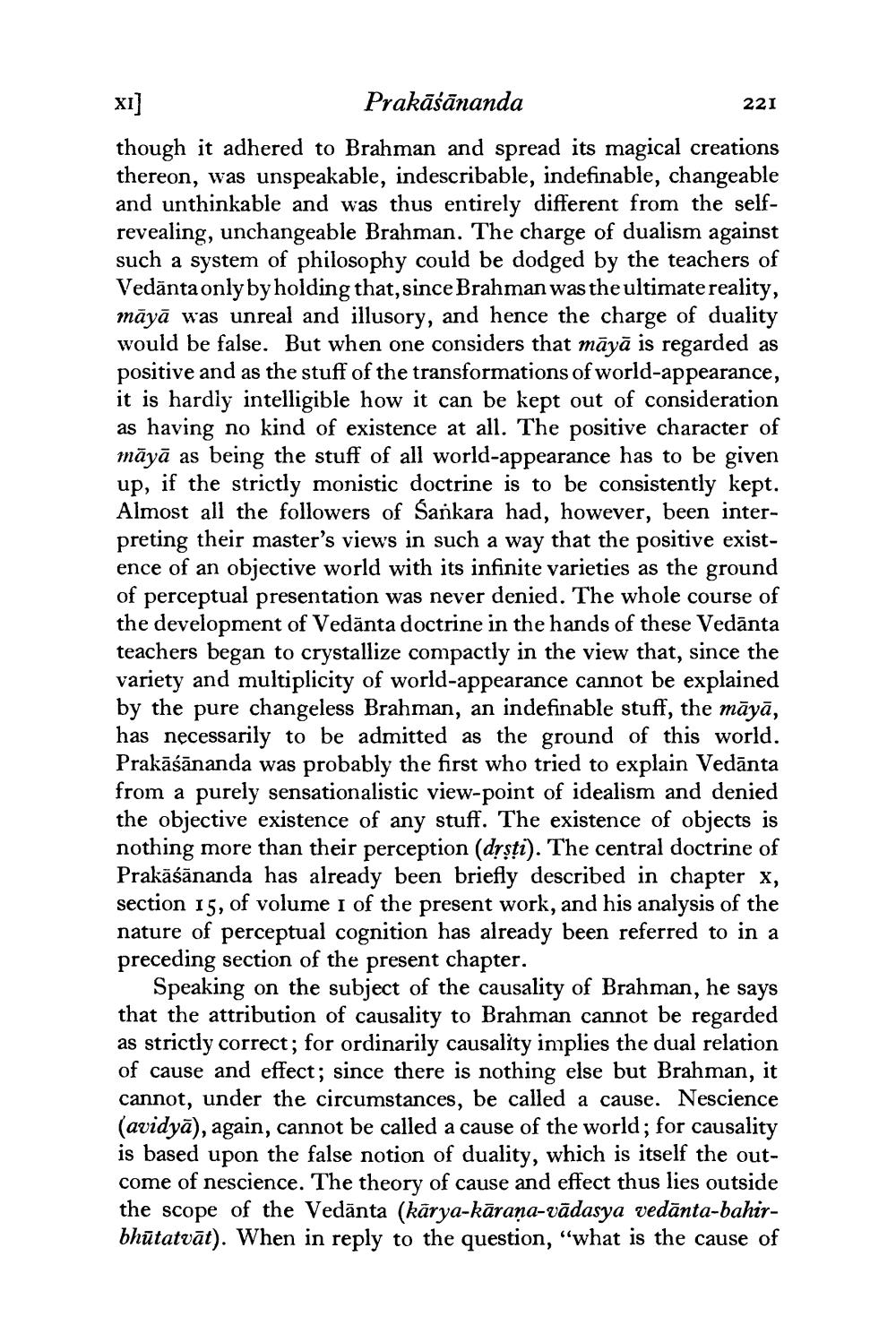________________
XI]
Prakāśānanda
though it adhered to Brahman and spread its magical creations thereon, was unspeakable, indescribable, indefinable, changeable and unthinkable and was thus entirely different from the selfrevealing, unchangeable Brahman. The charge of dualism against such a system of philosophy could be dodged by the teachers of Vedanta only by holding that, since Brahman was the ultimate reality, māyā was unreal and illusory, and hence the charge of duality would be false. But when one considers that māyā is regarded as positive and as the stuff of the transformations of world-appearance, it is hardly intelligible how it can be kept out of consideration as having no kind of existence at all. The positive character of māyā as being the stuff of all world-appearance has to be given up, if the strictly monistic doctrine is to be consistently kept. Almost all the followers of Sankara had, however, been interpreting their master's views in such a way that the positive existence of an objective world with its infinite varieties as the ground of perceptual presentation was never denied. The whole course of the development of Vedanta doctrine in the hands of these Vedanta teachers began to crystallize compactly in the view that, since the variety and multiplicity of world-appearance cannot be explained by the pure changeless Brahman, an indefinable stuff, the māyā, has necessarily to be admitted as the ground of this world. Prakāśānanda was probably the first who tried to explain Vedānta from a purely sensationalistic view-point of idealism and denied the objective existence of any stuff. The existence of objects is nothing more than their perception (drști). The central doctrine of Prakāśānanda has already been briefly described in chapter x, section 15, of volume 1 of the present work, and his analysis of the nature of perceptual cognition has already been referred to in a preceding section of the present chapter.
221
Speaking on the subject of the causality of Brahman, he says that the attribution of causality to Brahman cannot be regarded as strictly correct; for ordinarily causality implies the dual relation of cause and effect; since there is nothing else but Brahman, it cannot, under the circumstances, be called a cause. Nescience (avidya), again, cannot be called a cause of the world; for causality is based upon the false notion of duality, which is itself the outcome of nescience. The theory of cause and effect thus lies outside the scope of the Vedanta (karya-kāraṇa-vādasya vedanta-bahirbhūtatvāt). When in reply to the question, "what is the cause of




